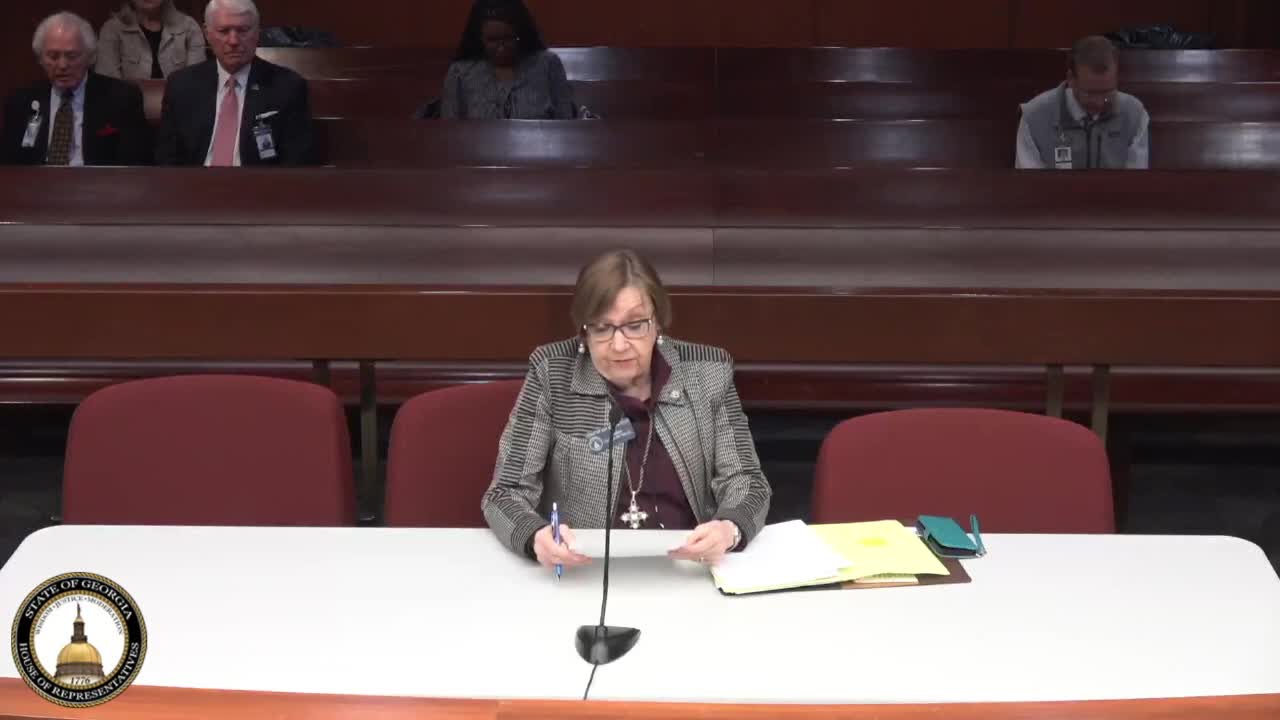Committee proposes fee increase for DUI rehabilitation programs amid business struggles
March 21, 2025 | 2025 Legislature Georgia , Georgia
This article was created by AI summarizing key points discussed. AI makes mistakes, so for full details and context, please refer to the video of the full meeting. Please report any errors so we can fix them. Report an error »

In a recent meeting of the Georgia Legislature, lawmakers discussed critical issues surrounding motor vehicle regulations, particularly focusing on the challenges posed by reckless driving and the sustainability of DUI education programs. The discussions highlighted the need for legislative action to address these pressing concerns.
One of the primary topics was the increasing incidents of reckless stunt driving that often cross jurisdictional lines, posing risks to innocent bystanders. Law enforcement representatives from the Atlanta Police Department and Georgia State Patrol emphasized the urgency of addressing these multi-jurisdictional issues, advocating for the advancement of proposed legislation aimed at curbing such dangerous behaviors.
Another significant point of discussion revolved around the financial viability of DUI schools in Georgia. Legislators noted that many of these institutions have not raised their fees in over a decade, leading to a decline in their numbers—from 22 schools in DeKalb County just a few years ago to only 8 currently. Rising operational costs, including rent and labor, have put additional strain on these programs, prompting calls for a fee increase.
A proposed amendment to raise the fees for DUI education programs from $385 to $430 was introduced, which would represent a modest increase after years of stagnation. This proposal included an additional $10 assessment fee, bringing the total increase to $55. Lawmakers expressed that this adjustment is necessary to ensure the continued operation of these schools while preventing a price war that could undermine the integrity of DUI education.
The discussions underscored the importance of maintaining effective DUI programs to prevent future offenses and protect public safety. As the committee moves forward, the proposed changes aim to strike a balance between financial sustainability for educational institutions and the overarching goal of reducing impaired driving incidents in Georgia. The outcome of these discussions will likely shape the future of motor vehicle regulations and public safety initiatives in the state.
One of the primary topics was the increasing incidents of reckless stunt driving that often cross jurisdictional lines, posing risks to innocent bystanders. Law enforcement representatives from the Atlanta Police Department and Georgia State Patrol emphasized the urgency of addressing these multi-jurisdictional issues, advocating for the advancement of proposed legislation aimed at curbing such dangerous behaviors.
Another significant point of discussion revolved around the financial viability of DUI schools in Georgia. Legislators noted that many of these institutions have not raised their fees in over a decade, leading to a decline in their numbers—from 22 schools in DeKalb County just a few years ago to only 8 currently. Rising operational costs, including rent and labor, have put additional strain on these programs, prompting calls for a fee increase.
A proposed amendment to raise the fees for DUI education programs from $385 to $430 was introduced, which would represent a modest increase after years of stagnation. This proposal included an additional $10 assessment fee, bringing the total increase to $55. Lawmakers expressed that this adjustment is necessary to ensure the continued operation of these schools while preventing a price war that could undermine the integrity of DUI education.
The discussions underscored the importance of maintaining effective DUI programs to prevent future offenses and protect public safety. As the committee moves forward, the proposed changes aim to strike a balance between financial sustainability for educational institutions and the overarching goal of reducing impaired driving incidents in Georgia. The outcome of these discussions will likely shape the future of motor vehicle regulations and public safety initiatives in the state.
View full meeting
This article is based on a recent meeting—watch the full video and explore the complete transcript for deeper insights into the discussion.
View full meeting
